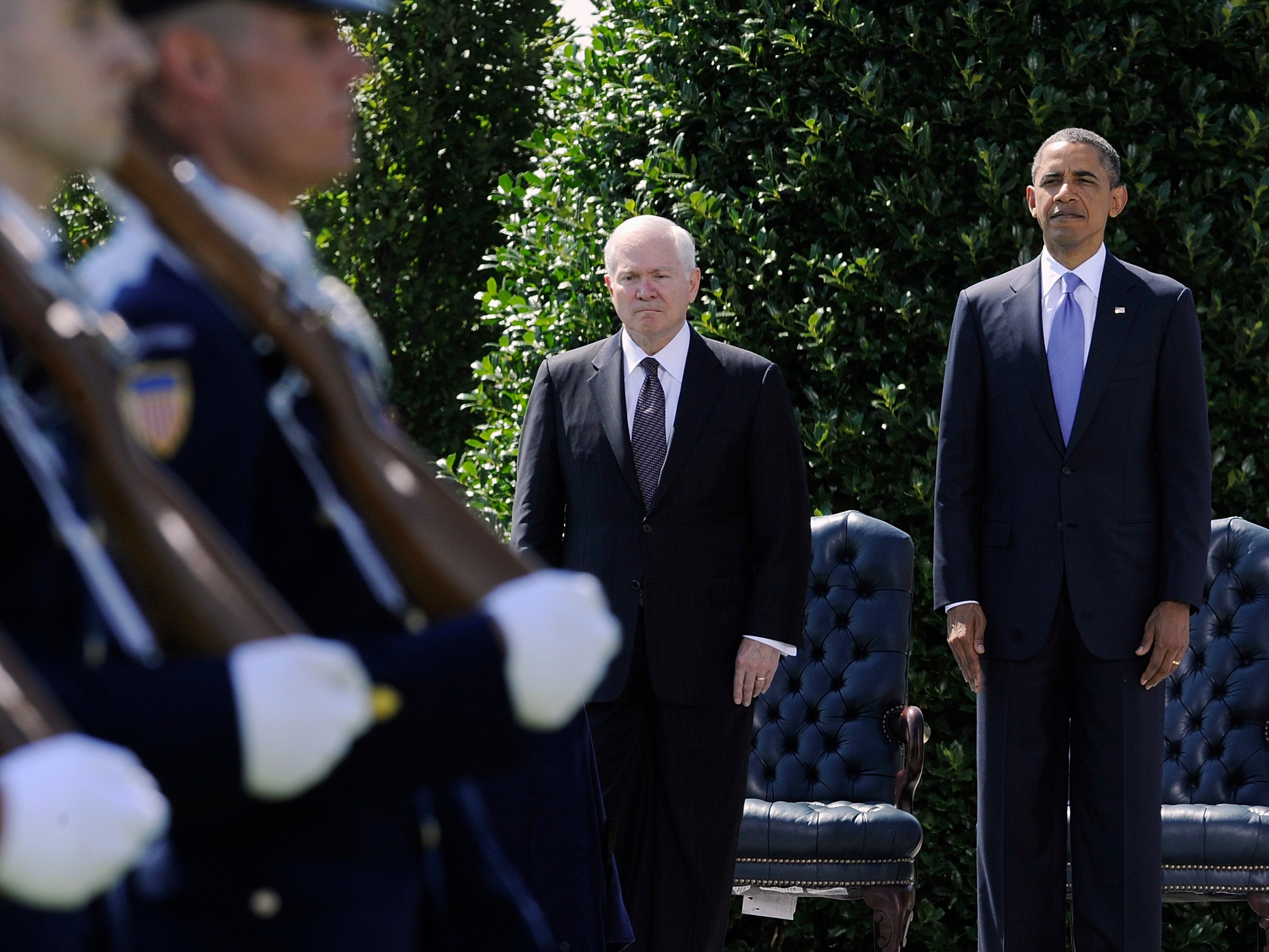
A former US defense secretary who served under four presidents referred the young aides on US President Barack Obama’s national-security and foreign-policy teams as "dangerously naive" in an article published on Thursday in Politico magazine.
The article describes the disillusionment of many of Obama’s top advisers who feel that the president’s rhetoric has not matched up to his policies, especially in the Middle East.
"Many Obama supporters started out believing that the president had grand ambitions for replacing George W. Bush’s militaristic posture with a more enlightened and progressive approach to the world before coming to believe they had misread a president who was not the idealistic internationalist they had thought he was," Michael Crowley wrote for the magazine.
He continued: "In hindsight, it seems clear that Obama came to office far more focused on showing the world that the Bush era was over than on any coherent strategy of his own for advancing human rights or democracy."
The article portrays Obama’s younger staff members as idealistic foils to the older and more experienced foreign-policy hands like Gates and Hillary Clinton, who served as US secretary of state under Obama and is now the Democratic front-runner for president.
One of the most contentious issues of Obama’s presidency seems to have come over Egypt. After the Arab Spring protests broke out in 2010 and 2011, many of Obama’s younger staff members wanted the president to pull his support from then-President Hosni Mubarak — an "82-year-old dictator who ran a cruel police state," as Politico described him.
But this would come with its own set of complications, as more experienced advisers pointed out.
Politico described the dilemma, revealing what appears to be a wide gulf between those described as Obama’s more idealistic advisers and his more pragmatic confidants on basic questions of how the administration should shape its foreign policy:
He was naturally inclined to side with young, Internet-savvy protesters against an 82-year-old dictator who ran a cruel police state. But Mubarak was also a longtime U.S. ally who opposed Islamic radicals, honored a peace treaty with Israel and gave the Pentagon vital access to the Suez Canal. Younger aides like [deputy national security adviser Ben] Rhodes, [current US ambassador to the United Nations Samantha] Power and Antony Blinken, then Vice President Joe Biden’s national security adviser, urged Obama to get ‘on the right side of history’ and give Mubarak a decisive push.
Secretary of State Hillary Clinton would later describe them, in her memoir, as being "swept up in the drama and idealism of the moment." She, along with other elders like Gates and then-national security adviser Tom Donilon, warned of unintended consequences. Gates recalled the way Jimmy Carter withdrew his support for the embattled Shah of Iran only to see the fanatical Ayatollah Khomeini hijack Iran’s 1979 revolution. Obama’s chief of staff, William Daley, would listen to Rhodes in White House meetings and wonder what he really knew about Egypt.
Power’s "hobbyhorse" was maintaining dignity in America’s relations with the world, and Rhodes "emerged early as an idealistic thinker who wanted to see American values advanced in peaceful ways," according to Politico. Gates reportedly found these 30-something aides "dangerously naive."
In the end, Obama ended up siding with Rhodes and called for Mubarak to step down. Obama staffers gathered for a party after Mubarak resigned, but not everyone was confident in their celebrations. Michael McFaul, the former US ambassador to Russia, told Politico that while it was a "euphoric night," he was "nervous as hell" amid the reveling thinking of everything that could go wrong.
After Mubarak left office, an Islamist president, Mohamed Morsi, was elected in his place. Morsi was later toppled in a military coup by Gen. Abdel Fattah el-Sisi, whose forces massacred peacefully protesting Morsi supporters after he took power.



